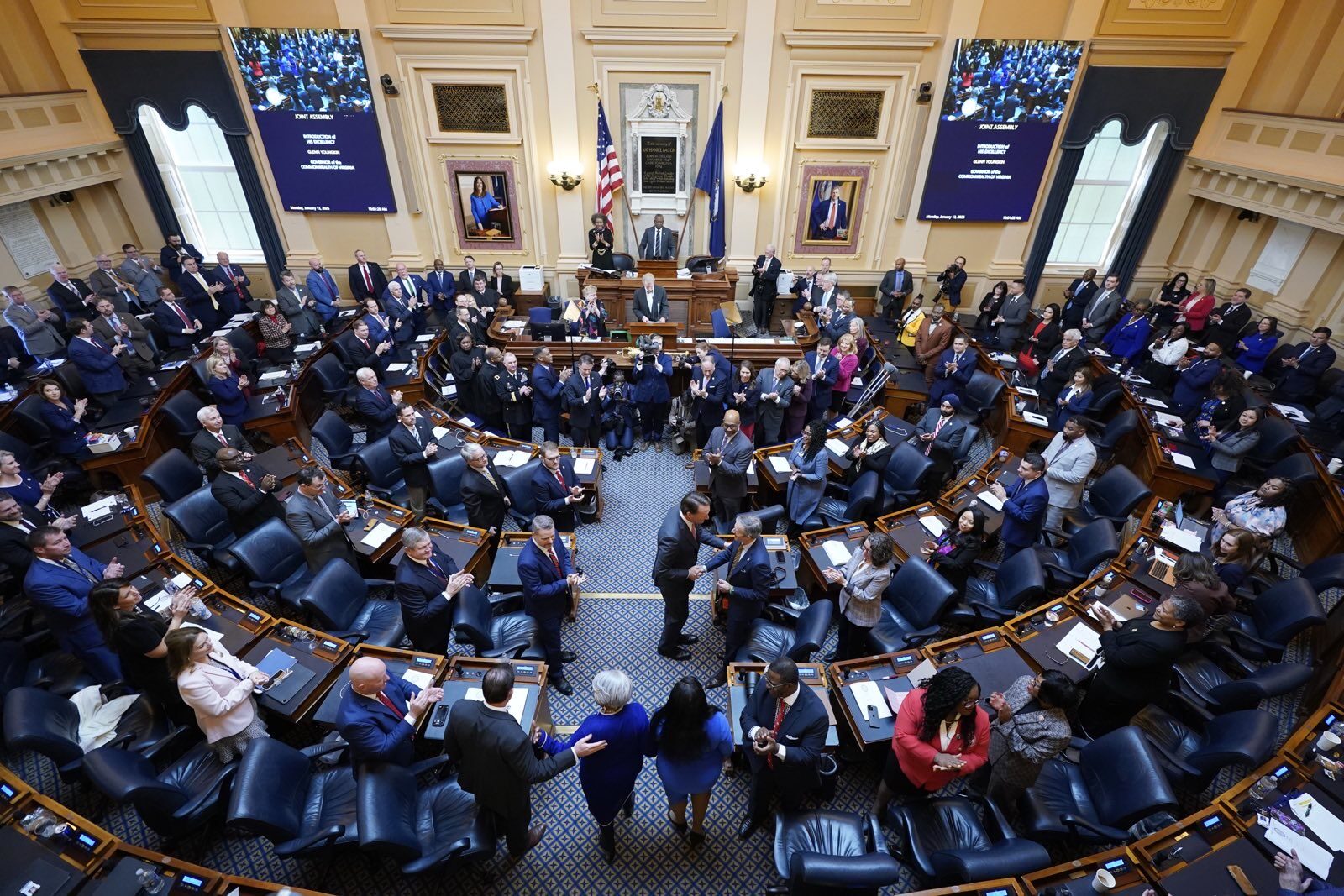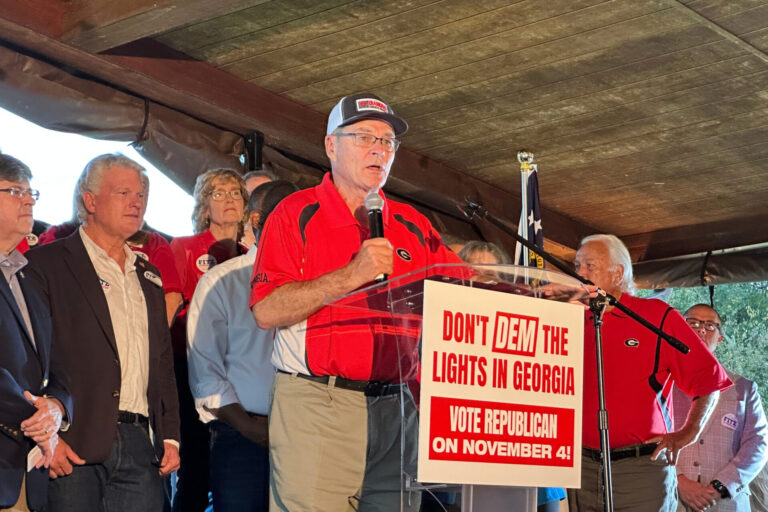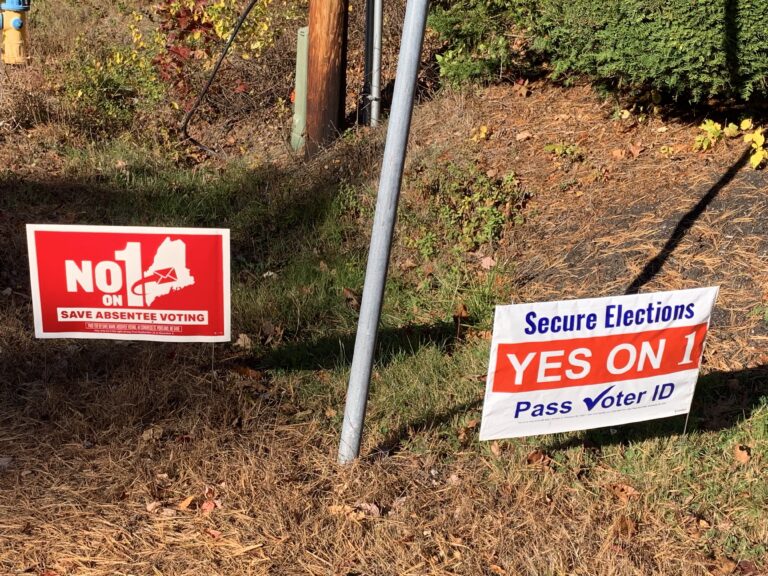Dominion Energy spending in Virginia elections nears all-time high

Dominion Energy is on pace to break spending records in Tuesday’s elections for Virginia’s next Governor, Lieutenant Governor, Attorney General, and all 100 Delegates in the General Assembly, according to campaign finance data reviewed by the Energy and Policy Institute.
Unlike most states, Virginia does not limit corporate contributions to campaigns, enabling Dominion to spend nearly $8.3 million, as of October 15th, in an attempt to hand-pick some of the representatives who select its regulators responsible for overseeing its business and setting the rates the utility can charge to its customers. The financial stakes are growing as demand for electricity skyrockets from data centers, which could soon account for 50% of Dominion’s revenues, according to Scott Castle, the utility’s Vice President of Regulatory Affairs.
Dominion spread its millions among 75 primary and general election candidates this cycle, with 48 still in the running—including Attorney General (AG) Jason Miyares, the top recipient of Dominion cash this year. Virginia State Board of Elections filings show Miyares has accepted $1.35 million from Dominion, while simultaneously leading the office that serves as the consumer advocate for utility customers in Virginia. Miyares’ office is currently intervening in a Dominion rate case that could increase monthly bills for customers by an average of nearly $22 if approved by the State Corporation Commission (SCC), which is responsible for determining how high to set utility bills and profits.
Virginia is one of only two states that selects commissioners via election by the General Assembly, whose members also pass legislation that determines how utilities are regulated. Dominion is known for using its political influence to shape legislative outcomes, as illustrated by a series of bills that gave Dominion outsized power to raise electricity rates, skirt regulation, and charge customers for excess profits. But a recent wave of utility reform legislation restored base rate-setting authority to the SCC, a power that was previously stripped from the commission in 2015 legislation.
Some candidates are severing ties with the utility
Dominion has pumped over $2.1 million into Virginia’s Attorney General race this year, the most the utility has ever spent on a Virginia race, according to an analysis of state campaign finance filings by the Energy and Policy Institute (EPI).
This election cycle, Dominion hedged its bets for AG and split the record-breaking $2.1 million among two candidates, one on each side of the aisle, to oppose a vocal Dominion critic, former Delegate Jay Jones. Dominion backed the current AG Republican Miyares, and a Democratic challenger to Jones, Shannon Taylor. Dominion poured $775,000 into the Taylor’s campaign. Jones, who prevailed in the Democratic primary against Taylor, advanced to the general election against Miyares. In an opinion essay, Jones called for “a democratized energy system” that is no longer “overwhelmingly dictated by … monopoly utilities, resulting in laws that too often favor utility profit at the expense of the public interest.”
Jones received an endorsement and $325,000 in campaign contributions from Clean Virginia, according to the Virginia Public Access Project. Clean Virginia was established to challenge Dominion’s political influence in the state. The group said “Jones [has] taken a principled stance against accepting donations from publicly regulated utility monopolies,” along with Democratic candidate for Governor Abigail Spanberger.
Spanberger’s opponent, Lt. Governor Winsome Earle-Sears, accepts contributions from regulated utilities, and has received $200,000 from Dominion in support of her effort to keep her party in the Governor’s mansion. Not all Republicans are following Earle-Sears’ lead, however. Eight Republicans running for re-election this year broke from Dominion despite previously accepting the utility’s money, according to EPI’s analysis of state campaign finance filings.
Republican delegates Lee Ware, Carrie Coyner, Mike Cherry, and Amanda Batten collectively accepted over $220,000 from Dominion since 2021, but now refuse even a cent from any utility monopolies regulated by the SCC, according to a statement from Clean Virginia.
When asked by EPI why Ware stopped accepting Dominion money, Ware’s counsel shared an email that Ware’s political action committee had sent in May, 2024 to a Dominion representative, stating “Friends of Lee Ware has decided, and pledged, no longer to request or to accept donations from Dominion Energy or its subsidiaries,” along with a Virginia Scope article detailing Ware’s 2022 legislative attempt to ban campaign political contributions from public utility companies, like Dominion.
Ware represents part of Chesterfield County, where Dominion—through its allied pro-utility front group Power for Tomorrow—is fighting widespread public opposition to a highly contested methane gas plant it claims is “critical” to meeting data center demand. Ware shares the district with Del. Coyner, who faces a rematch from four years ago when she takes on Democratic challenger Lindsey Dougherty in Tuesday’s general election. Dougherty, who opposes the plant, argued it “would hurt our air, our water, and our wallets, while doing nothing to solve our long-term energy needs.”
Senator Ghazala Hashmi, also a representative of the county, has led 19 other Virginia legislators in urging the Department of Environmental Quality and the SCC to deny the plant’s approval. Hashmi, now the Democratic nominee for Lt. Governor running against Dominion-backed John Reid, stated in the letter that the Chesterfield County plant “undermines Virginia’s pledge to transition to clean energy by 2050 and disregards the Commonwealth’s environmental justice policy.”
Header image from the Associated Press.



